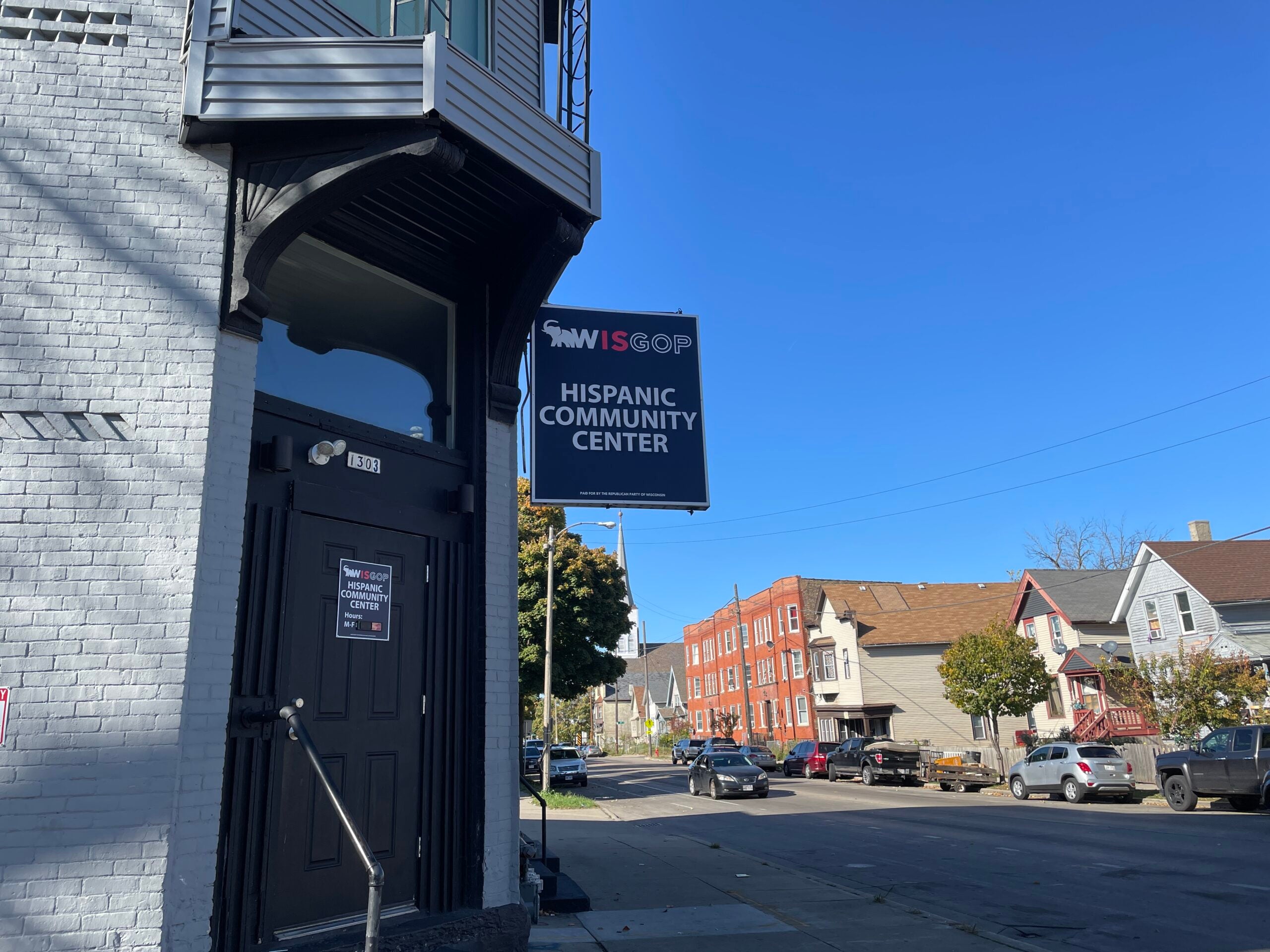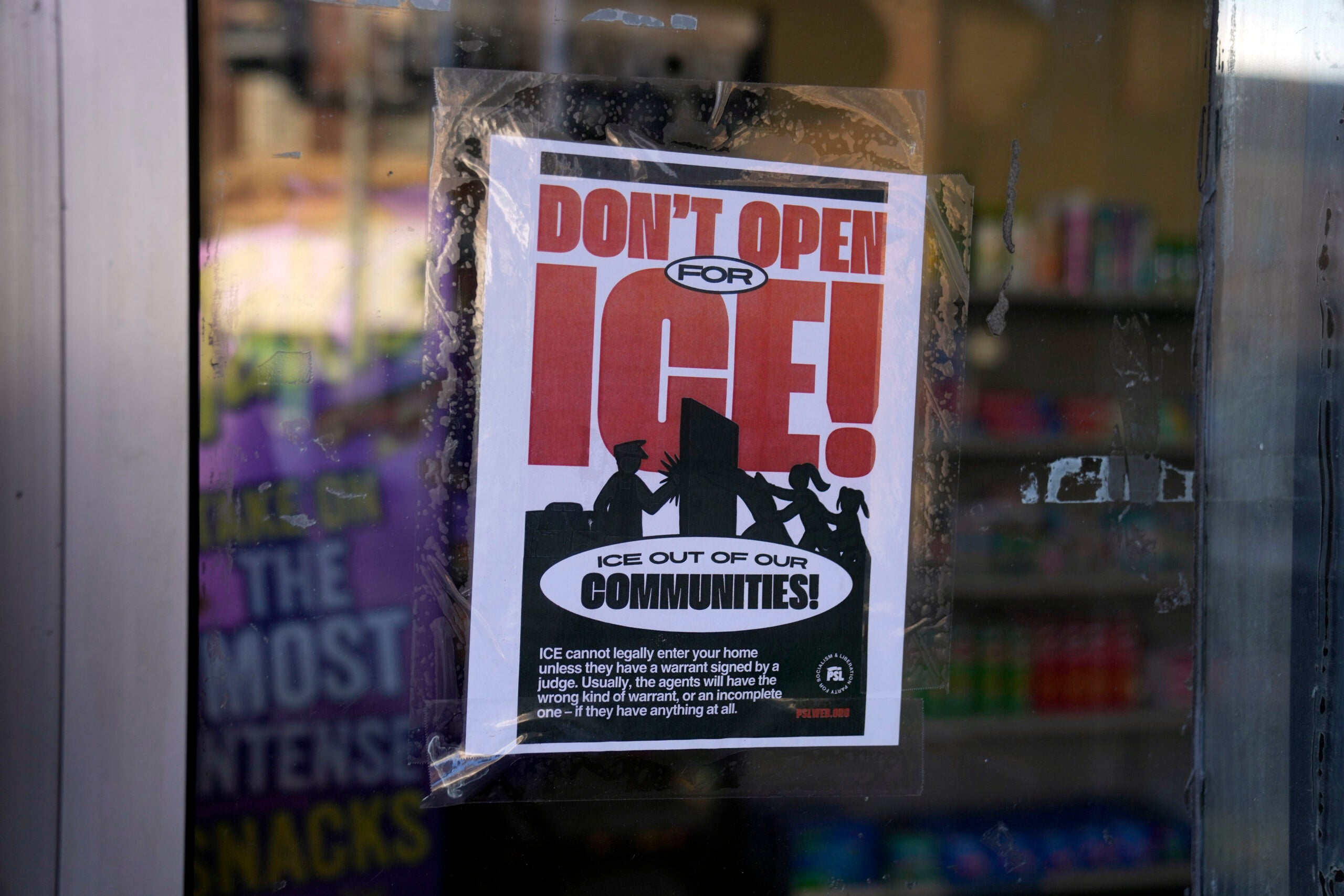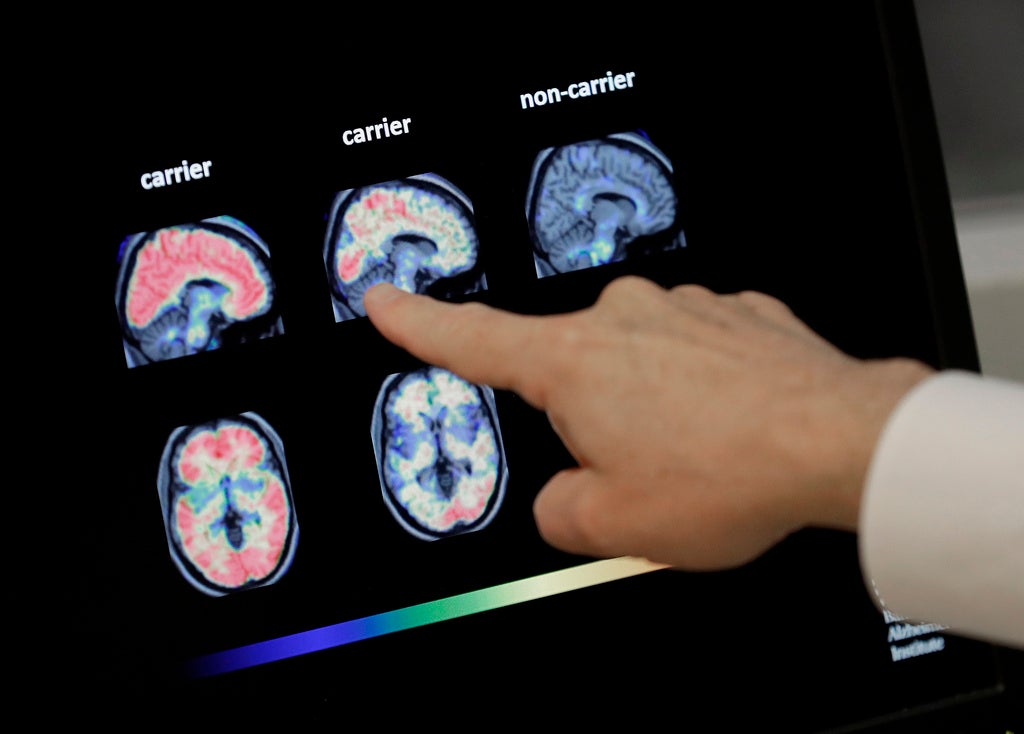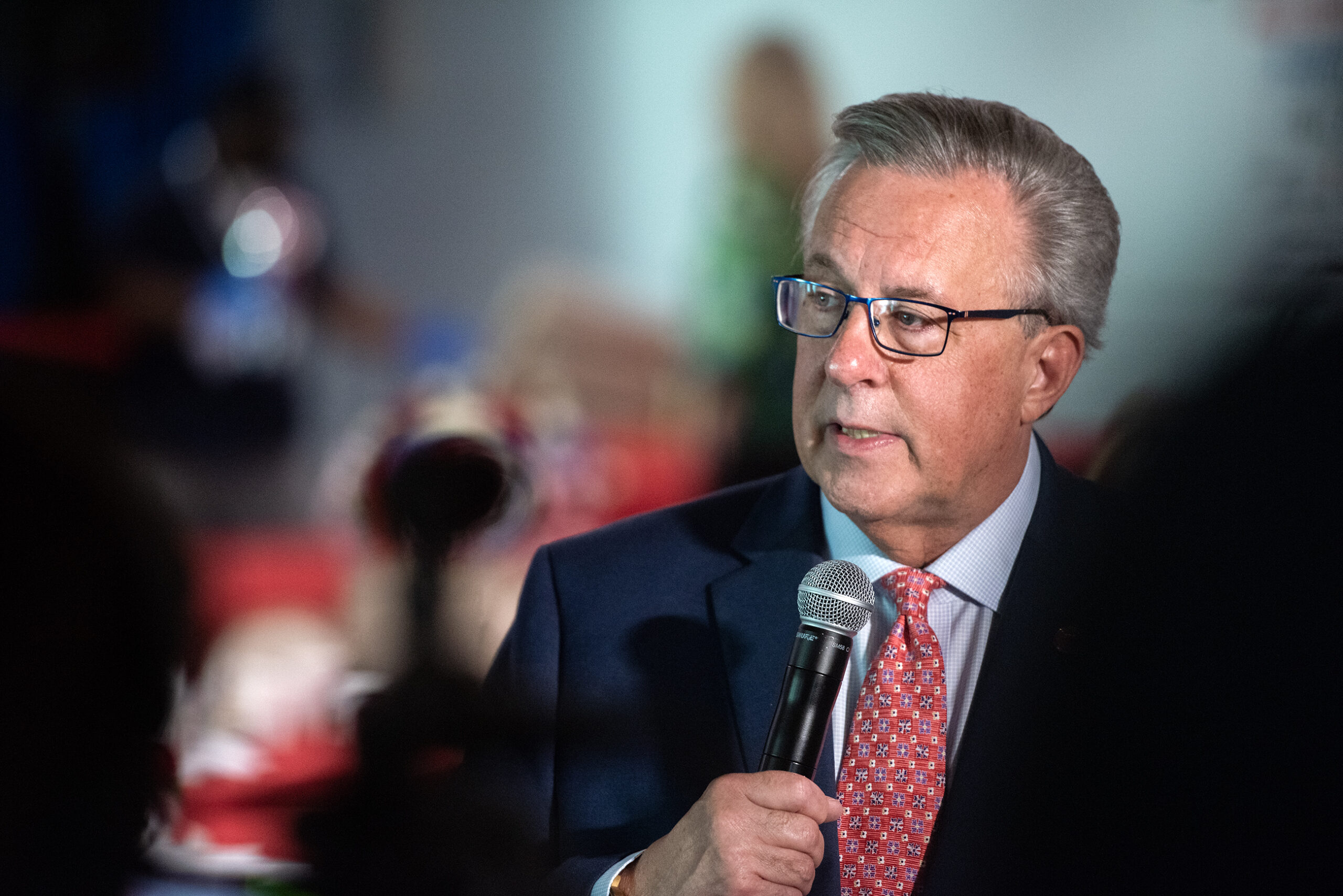David Najera is the face of the Milwaukee County GOP’s Hispanic Community Center. Every weekday, from 9-to-5, people stop by the corner office in Milwaukee’s Walker Square neighborhood, part of the heavily Hispanic near south side. He says some are looking for directions to social services, or for free taco nights. He sees it all.
“When you get to know people, they trust you more,” Najera said, surrounded by Republican campaign signs.
“Then they ask, ‘What can the Republican Party do for us?’ And we try to enlighten them on that,” he said.
News with a little more humanity
WPR’s “Wisconsin Today” newsletter keeps you connected to the state you love without feeling overwhelmed. No paywall. No agenda. No corporate filter.
The center also helps visitors register to vote.
Exit polls showed that 60 percent of Wisconsin’s Latinos voted for President Joe Biden in 2020 presidential election — a slight dip from Democrat Hillary Clinton’s 63 percent. The numbers are similar to data from the Pew Research Center, which found Biden won Latinos by 59 percent nationally compared to 66 percent for Clinton.
Now, both parties are trying to win over Latino voters, especially in Wisconsin.
According to U.S. Census surveys compiled by the Kaiser Family Foundation in 2022, 47.2 percent voting-eligible Latinos in Wisconsin weren’t registered to vote.
“If they were registered, Wisconsin would be a no-contest,” said Ben Marquez, a University of Wisconsin-Madison political scientist studying Latino political organization and behavior. “Kamala Harris wouldn’t even have to come here to win. They’d just go out and vote two-to-one for her, and she’d take the state.”
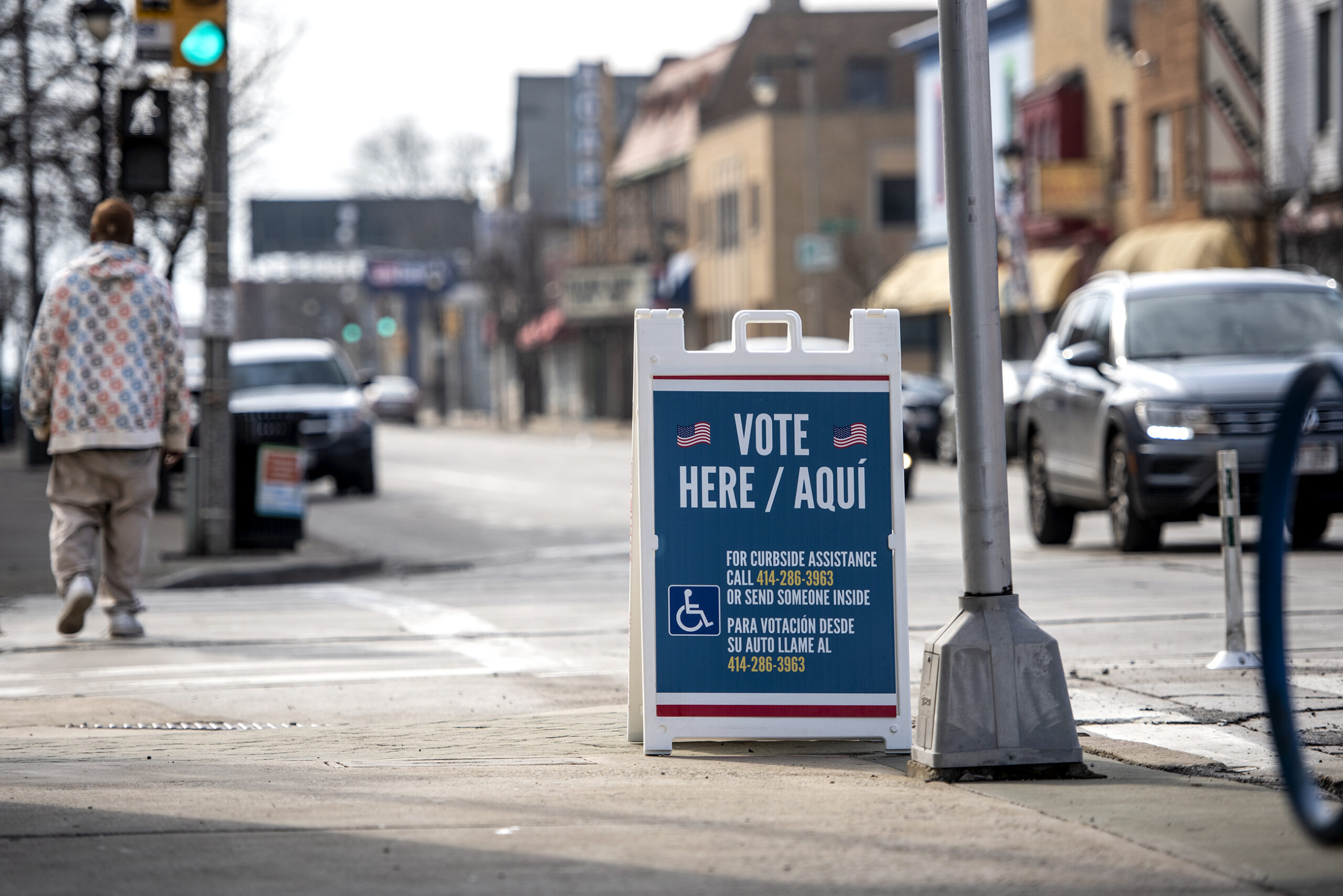
Several organizations are trying to change that. According to a spokesperson for Voces de la Frontera, an immigrant rights nonprofit in Milwaukee, the group has registered at least 3,500 Latinos to vote in 2024, knocked on over 135,000 doors across the state, and reached upwards of 30,000 people through its “relational” voting network.
Voces’ political arm has endorsed Democratic Vice President Kamala Harris for president. Some organizations are doing the work in a non-partisan fashion.
According to Darryl Morin, President of non-profit Forward Latino, his team has knocked on over 8,000 doors on Milwaukee’s south side this election cycle, without advising a vote for either party.
“Our message is that the whole community benefits when our voices are heard,” he said.
Marquez said a high proportion of new immigrants could account for Wisconsin Latinos’ low registration rates.
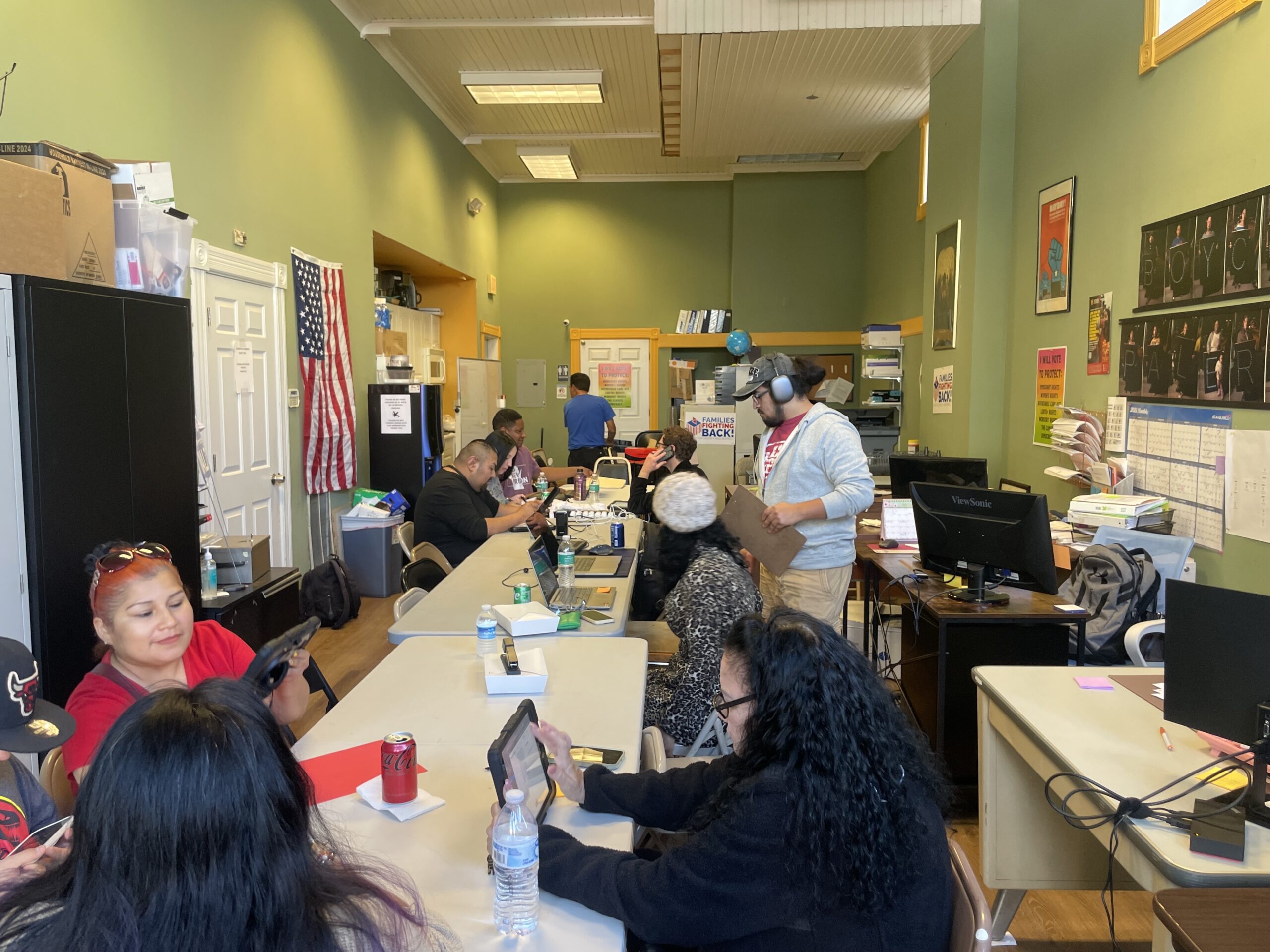
As for Latinos’ rightward shift, he said marriage to white Americans and upward economic mobility can change voting patterns. So can a weaker sense of loyalty to political parties.
“They’re not strongly attached to either party,” Marquez said. “So two out of three Latinos will identify as Democrats. But if you ask them, ‘How strongly attached are you to the Democratic Party?’ They’ll (say), ‘Not very much.’”
That’s true of Najera, the GOP outreach worker. He was born in Milwaukee to Latino parents from Mexico and Texas, and raised in the Third Ward. His father worked in a Menomonee Valley tannery.
“He worked and slaved a lot of hours to keep us in food and clothes,” Najera said.
Previously a Democrat, Najera said he “turned Republican a couple years back.” He felt that his south side neighborhood was declining, and turned “sour” at the Biden administration’s tolerance for migrants crossing the southern border.
“My parents came in the right way, and these people should’ve come in the right way, too,” he said.
Besides crime, he said the GOP center’s visitors are also concerned about new migrants in their neighborhood.
He said people he talks to “go some places and they’re already hiring these migrants to take their jobs.”
“People are still hiring them out because they get cheap labor,” Najera said.
He said neighbors are “getting to know” the center’s employees now.
“So they come in, just to talk once in a while, grab a bottle of water or soda or something, and let us know what’s going on in the neighborhood,” he said.
“They’re looking for change, they are, and they want to find out about the Republicans,” he said.
According to a recent poll of 200 Wisconsin Latinos from the national Hispanic Federation, 85 percent “probably” or “almost certainly” will vote. Thirty-eight percent marked a “favorable” opinion of Donald Trump. That number was 62 for Kamala Harris.
Wisconsin Public Radio, © Copyright 2025, Board of Regents of the University of Wisconsin System and Wisconsin Educational Communications Board.

